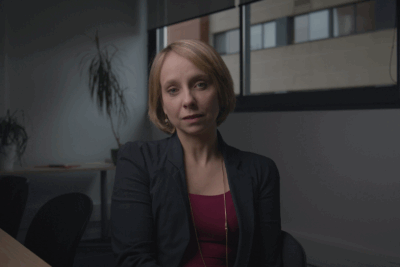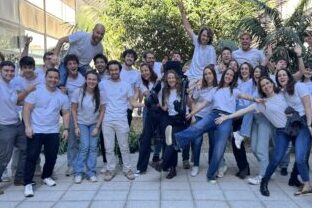14th October 2022
- Through i4KIDS, the hub specialised in Paediatric and Maternal Innovation, Sant Joan de Déu Hospital becomes a strategic collaborator of EIT Health’s Wild Card programme to promote innovative solutions in the field of paediatric health.
- The programme will provide funding up to 1.5 million euros to up to two proposals selected by EIT Health and i4KIDS during their first two years of existence.
i4KIDS, the paediatric innovation hub coordinated by the Sant Joan de Déu Hospital in Barcelona, will collaborate with EIT Health in the European Wild Card programme, whose aim is to identify and promote innovative solutions and technologies to tackle the main health challenges in Europe; in its sixth edition, the programme will be dedicated to paediatric health.
The official announcement was made during the latest edition of the Pediatric Innovation Day organised by i4KIDS, where María Sanchís, head of Open Innovation Programmes at EIT Health, explained that the paediatric innovation hub of the Sant Joan de Déu Hospital will become a strategic partner of the Wild Card programme, which is co-funded by the European Union.
“This collaboration will help us understand the needs of such a diverse group as children and adolescents, accelerate the development of innovations focused on children and their families, and invest in the health of the future”, says Sanchís.
“We are very proud that the Parc Sanitari Sant Joan de Déu, a strategic partner for the Spanish partnership, is actively collaborating with Wild Card, one of the European programmes with the greatest impact on the creation and scaling up of technology companies”, says Cristina Bescós, Director of Innovation at EIT Health and Managing Director of EIT Health Spain.
“Reducing morbidity and mortality during pregnancy, childhood and adolescence remains a global health priority. We consider it essential to develop specific solutions for child and adolescent health that can be evaluated with the appropriate indicators and that allow us to produce innovations focused on this population group and that are not a mere adaptation of applications for adults”, she adds. “This collaboration will be very enriching for both organisations”, Bescós concludes.
“EIT Health is a strategic partner that is giving us great support in various actions to drive paediatric innovation on a European scale”, says Xavier Puñet, Innovation Business Developer at Sant Joan de Déu Hospital and promoter of i4KIDS.
“With the launch of the paediatric Wild Card and its ability to connect the key players of the European healthcare ecosystem, we will raise awareness of the potential of paediatric innovation and identify and support projects that address unmet needs in the health and well-being of children and mothers. We hope that this collaboration will represent a catalyst to help increase the number of solutions designed specifically for the paediatric population. Children represent 25% of the population, and 100% of our future”, Puñet concludes.
Arnau Valls, innovation coordinator and technical manager of the 3D printing unit at the Sant Joan de Déu Hospital, explains that in the U.S.A. in the last 10 years “only 24% of approved medical devices have a paediatric indication and more than 50% of drugs in paediatrics are prescribed off-label [1]. This percentage rises to 90% in the case of rare diseases. This highlights a need for initiatives such as this collaboration in the Wild Card programme to facilitate access to the market of solutions for this segment of the population, which is so vulnerable and so important for our future”.
“i4KIDS and Sant Joan de Déu are very excited about this strategic collaboration with a lead organisation in healthcare innovation such as EIT Health, which brings together the best players and innovators in the European ecosystem “, Valls concludes.
With a clear focus on addressing the main challenges in the field of paediatric health, both in children and adolescents, the Wild Card programme will select teams from across Europe that are developing the most promising technological solutions that address the needs of patients, families, and healthcare professionals.
These teams will be trained and mentored for 5 months by innovation and paediatric experts to consolidate their teams, and validate the need and market for their solutions. At the end of the programme, a maximum of two teams will receive up to 1.5 million euros of non-dilutive funding from EIT Health for two years.
To achieve this, EIT Health will launch a call for small teams of up to five members with a business idea, including start-ups and professionals with an entrepreneurial mindset. The application phase will run from the end of 2022 until March 2023, when the evaluation and selection of the submitted proposals will begin.
The programme will start in June 2023 with the teams going through team building, mentoring with experts, and validation of the business model. In October 2023, EIT Health will announce the teams that will receive funding of up to 1.5 million euros and will be incubated over the next 24 months, with the ultimate goal of forming start-ups with a solid business plan that will bring their innovative solutions to patients.
Note:
[1] Off-label are those medicines or devices prescribed under conditions other than those authorised, i.e. used for a use that is not reflected in the product label. Off-label use can occur when the indication, population or dosing regimen is changed.
EIT Health and the EDIT-B consortium transform bipolar disorder diagnosis with groundbreaking blood test

Discover this life-changing project today.
Three EIT Health innovators nominated for EIT Awards

Meet our three EIT Award nominees.
Hospital Clínic study reinforces patient participation as key to digital health innovation

New work published in Journal of Medical Internet Research.
